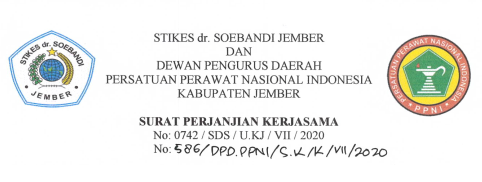The Effect of Family Caregiver Empowerment Model Intervention on Resilience in Caregivers of Type 2 Diabetes Mellitus Patients
DOI:
https://doi.org/10.36858/jkds.v13i2.784Keywords:
Resilence, Empowerment, Family Caregiver, Type 2 Diabetes MellitusAbstract
Background: Feelings of fatigue and stress can arise in caregivers when caring for patients with type 2 diabetes mellitus (T2DM) due to responsibility, pressure, and increasing demands. Therefore, the ability to bounce back from difficult situations, known as resilience, is needed.
Purpose: This study aims to analyze the effect of the Family Caregiver Empowerment Model (FCEM) intervention on the resilience of caregivers of patients with type 2 diabetes mellitus.
Methods: This study is a randomized control group pretest and posttest study with a sample of 74 respondents, randomly selected using cluster sampling (treatment = 35, control = 39). The independent variable is FCEM, and the dependent variable is resilience. The instrument used is the Connor-Davidson Resilience Scale 25 (CD-RISC 25) questionnaire. Statistical analysis was performed using the Wilcoxon Signed Rank Test and Independent T-test.
Results: The results showed that there was a significant difference in depression scores between the pretest and posttest in both the intervention and control groups (p = 0.000 and p = 0.002, < α = 0.05). Additionally, there was a significant difference in resilience between the intervention and control groups (t = 13.644, p = 0.000).
Conclusions: The findings of the study demonstrated the effect of the FCEM intervention on the resilience of caregivers of T2DM patients. It is essential to increase the resilience of family caregivers by providing empowerment as a form of social support.
References
Almasyhur, A. F. (2021). Uji validitas instrument Connor-Davidson Resilience Scale 25 (CD-RISC 25) versi Bahasa Indonesia = The validation study of Connor-Davidson resilience scale 25 (CD-RISC 25) in Indonesia. 25, 66. https://perpustakaan.fk.ui.ac.id/opac/index.php?p=show_detail&id=26927&keywords=https://perpustakaan.fk.ui.ac.id/opac/index.php?p=show_detail&id=26927&keywords=
American Diabetes Assosiation [ADA]. (2023). Standards of care in diabetes—2023. Diabtes Journals, 46(1), 1–298. https://diabetesjournals.org/care
Anizar, R. D. S., & Pudjiastuti, E. (2017). Studi deskriptif mengenai resiliensi istri sebagai caregiver pada penderita diabetes melitus (DM) tipe II di RSUD Sejiran Setason. Prosiding Psikologi, Dm, 1–6.
Bevans, M., & Sternberg, E. M. (2012). Caregiving burden, stress, and health effects among family caregivers of adult cancer patients. Jama, 307(4), 398–403. https://doi.org/10.1001/jama.2012.29
Cohen, L. (2018). Quantitative data analyses. In research methods in physical activity and health.
Connor, K. M., & Davidson, J. R. T. (2003). Development of a new resilience scale: The Connor-Davidson Resilience scale (CD-RISC). Depression and Anxiety, 18(2), 76–82. https://doi.org/10.1002/da.10113
Cui, P., Yang, M., Hu, H., Cheng, C., Chen, X., Shi, J., Li, S., Chen, C., & Zhang, H. (2024). The impact of caregiver burden on quality of life in family caregivers of patients with advanced cancer: a moderated mediation analysis of the role of psychological distress and family resilience. BMC Public Health, 24(1), 1–13. https://doi.org/10.1186/s12889-024-18321-3
Dinas Kesehatan Kabupaten Jember. (2022). Profil Kesehatan Kabupaten Jember Tahun 2022. www.dinas.kesehatan.jemberkab.go.id
Dinas Kesehatan Provinsi Jawa Timur. (2022). Profil Kesehatan Provinsi Jawa Timur Tahun 2022. www.dinkes.jatimprov.go.id
Family Caregiver Alliance. (2019). Caregiving : A universal occupation first steps : Help for new caregivers. 1–9. https://www.caregiver.org/caregiving
Hendriani, W. (2018). Resiliensi Psikologis (Pertama).
Indrastuti, M., & Herawati, T. (2023). the Multiple Role of Women, Coping Strategy, and Family Resilience During Covid-19 Pandemic. Journal of Child, Family, and Consumer Studies, 2(2), 138–146. https://doi.org/10.29244/jcfcs.2.2.138-146
International Diabetes Atlas 10th edition [IDF]. (2021). International Diabetes Federation. In Diabetes Research and Clinical Practice (Vol. 102, Issue 2). https://doi.org/10.1016/j.diabres.2013.10.013
Klainin-Yobas, P., Vongsirimas, N., Ramirez, D. Q., Sarmiento, J., & Fernandez, Z. (2021). Evaluating the relationships among stress, resilience and psychological well-being among young adults: a structural equation modeling approach. BMC Nursing, 20(1), 1–10. https://doi.org/10.1186/s12912-021-00645-9
Li, F., Luo, S., Mu, W., Li, Y., Ye, L., Zheng, X., Xu, B., Ding, Y., Ling, P., Zhou, M., & Chen, X. (2021). Li, Fugui Luo, Sihui Mu, Weiqi Li, Yanmei Ye, Liyuan Zheng, Xueying Xu, Bing Ding, Yu Ling, Ping Zhou, Mingjie Chen, Xuefeng. BMC Psychiatry, 21(1), 1–14.
Li, L., & Lee, Y. (2020). Caregiving choice and caregiver-receiver relation: Effects on the psychological well-being of family caregivers in Canada. Canadian Journal on Aging, 39(4), 634–646. https://doi.org/10.1017/S0714980819000825
Luthfa, I., & Ardian, I. (2019). Effects of family empowerment on increasing family support in patients with type-2 diabetes mellitus. Nurse Media Journal of Nursing, 9(1), 58–68. https://doi.org/10.14710/nmjn.v9i1.22501
Ong, H. L., Vaingankar, J. A., Abdin, E., Sambasivam, R., Fauziana, R., Tan, M. E., Chong, S. A., Goveas, R. R., Chiam, P. C., & Subramaniam, M. (2018). Resilience and burden in caregivers of older adults: Moderating and mediating effects of perceived social support. BMC Psychiatry, 18(1), 1–9. https://doi.org/10.1186/s12888-018-1616-z
Rondhianto, Nursalam, Kusnanto, & Melaniani, S. (2021). Panduan Pengelolaan Mandiri Diabetes Mellitus Tipe 2 di Rumah, Panduan Bagi Perawat. In Penerbit: KHD Production.
Rondhianto, Nursalam, Kusnanto, & Melanianic, S. (2022). The effect of family caregiver empowerment interventions on family caregiver capabilities in self-management of type 2 diabetes mellitus in Indonesia. Enfermeria Clinica, 32(1), 385–395.
Schwarzer, R., & Warner, L. M. (2013). Perceived self-efficacy and its relationship to resilience. March, 139–150. https://doi.org/10.1007/978-1-4614-4939-3_10
Vera Gil, S. (2024). The Influence of Gender on Academic Performance and Psychological Resilience, and the Relationship Between Both: Understanding the Differences Through Gender Stereotypes. Trends in Psychology. https://doi.org/10.1007/s43076-024-00370-7
Woodall, J., G. Raine, J., South, & Warwick-Booth, L. (2010). Empowerment and health & wellbeing.
Downloads
Published
How to Cite
Issue
Section
License
Copyright (c) 2025 Jurnal Kesehatan dr. Soebandi

This work is licensed under a Creative Commons Attribution-NonCommercial-ShareAlike 4.0 International License.










